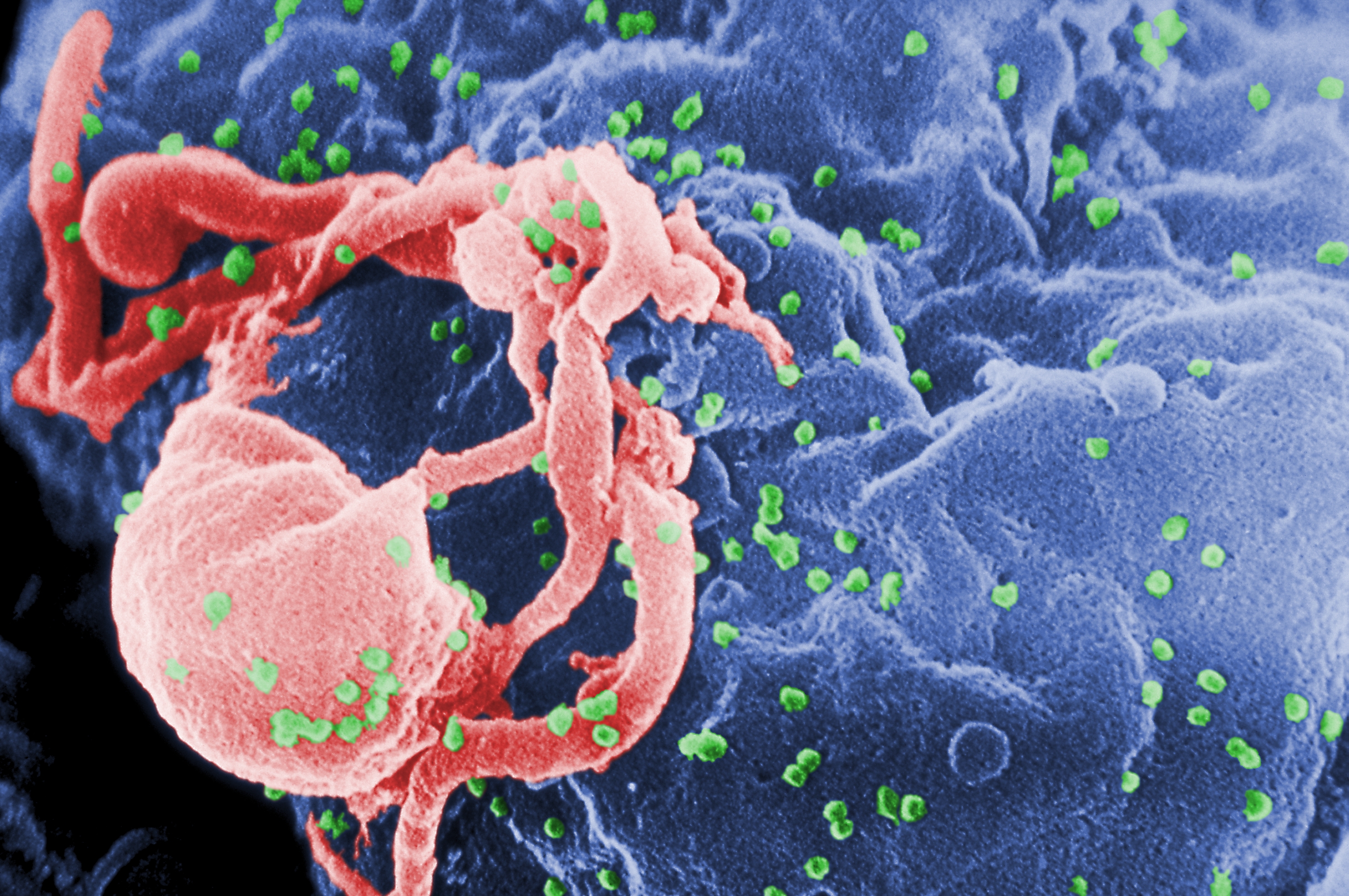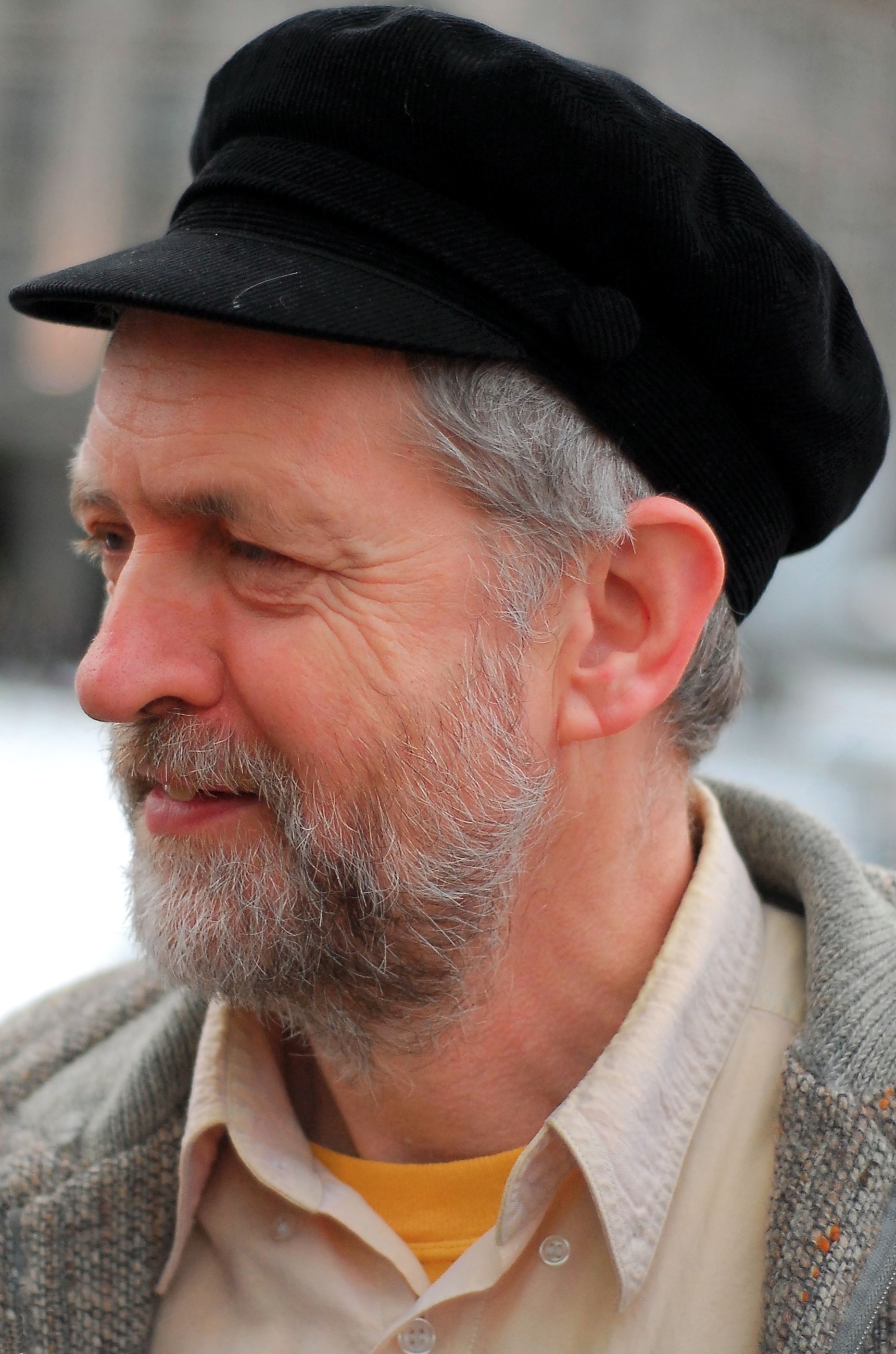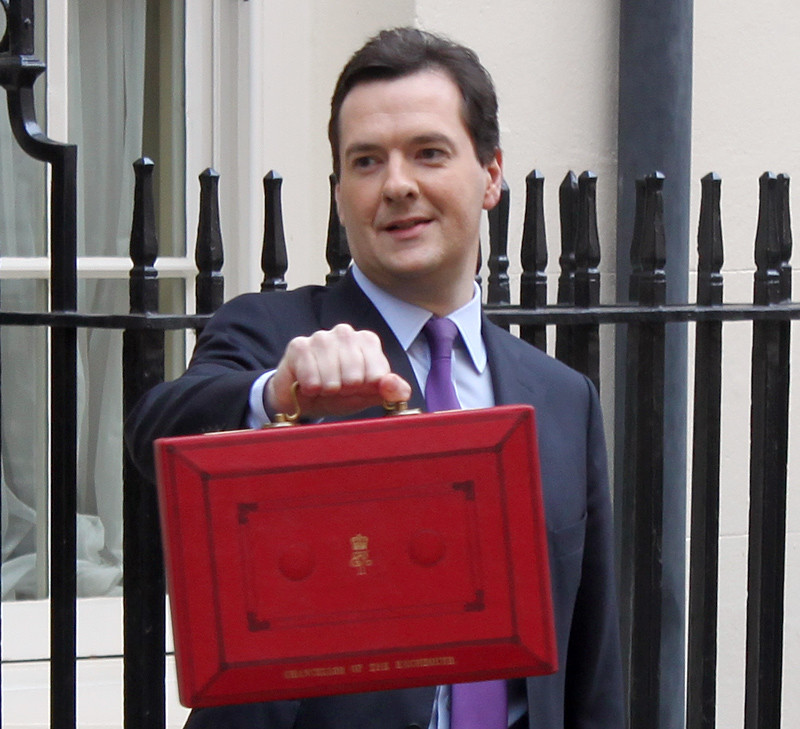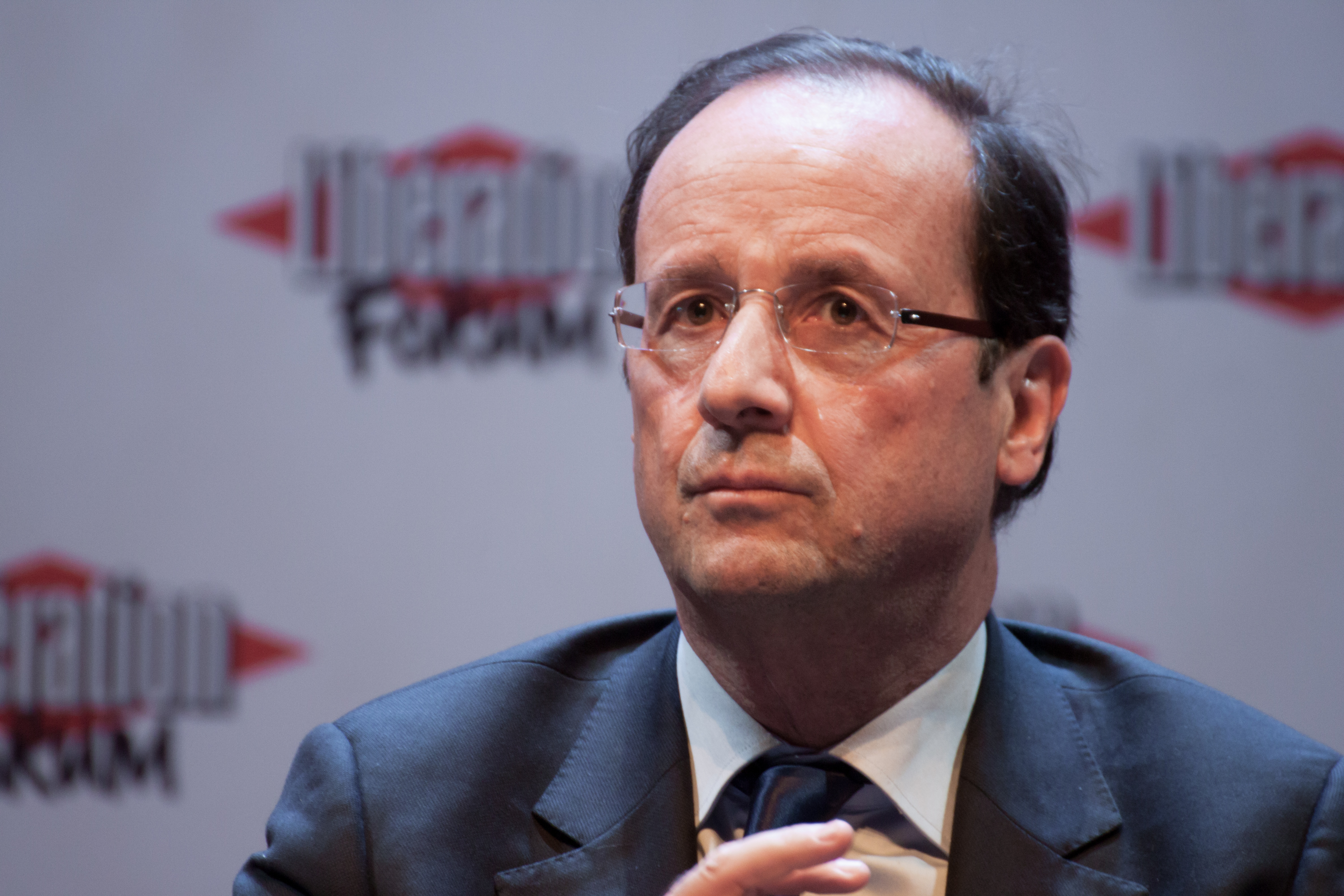Thursday, 3 December 2015
Syria airstrikes to go ahead
The government got its way in the House of Commons last night. The motion, to begin air strikes against ISIL in Syria passed with a majority of 174. 67 Labour rebels went into the Aye lobby, against Mr Corbyn's wishes, and sealed the fate of many people in a faraway place.The Ayes had it, the Ayes had it.
Last night's debate in the House of Commons was truly one of the most dramatic moments in recent political history. The population at large is roughly split down the middle, about whether we should get involved in Syria.
The Prime Minster was rebuked on multiple occasions for labelling Mr Corbyn and the anti-strike group as "terrorist sympathisers". A video has already gone viral, showing 12 MPs (Mr Corbyn included) asking Mr Cameron to apologise. Mr Cameron was resolute, despite one MP even commenting that apologising would greatly "improve his standing" in the house.
Mr Corbyn presented the case against strikes, scrutinising the claims that 70,000 moderates are willing to assist in the fight against ISIL. He noted that "it is quite clear that there are no such forces". He continued, stating that
it is quite clear that there are no such forces.
Hilary Benn, Shadow Foreign Secretary, made a memorable speech in favour of strikes. During his speech, Mr Benn dubbed ISIL "fascists", who "hold our values in contempt...our belief in tolerance and decency...our democracy...the means by which we will make our decision tonight...in contempt".
Mr Benn ended his speech, to loud cheers from both sides of the house. As Mr Benn turned to sit down on the frontbenches, Mr Corbyn had to shuffle from side to side awkwardly, stony-faced, to make room for him. It serves as a perfect metaphor for what just happened. For a moment, it was as if Mr Benn was the leader, and Mr Corbyn was just an observer, a victim to the events about to unfold.
Wednesday, 2 December 2015
Parliament prepares to vote on airstrikes
As Parliament buzzes with nervous MPs, preparing to vote on airstrikes in Syria, ISIL watches and waits. Like some carcinoma, a cancerous growth or an ink blot strewn over the Middle East, ISIL is already under siege.
A broad coalition of countries, Britain included, are already bombing Iraq to smithereens, in a bid to isolate what the Prime Minister has repeatedly called a "death cult".
Why does Britain's possible involvement in Syria matter? One of the things that could be a real gamechanger, if we enter into strikes on Syria is our capabilities.
Britain possesses Brimstone missile systems. Brimstone missiles are rocket-powered, and radar-guided. It is understood Brimstone missiles are good at hitting small targets.
Proponents for UK involvement will argue that we might be able to target high-profile targets, and effectively decapitate ISIL in a matter of days.
However, things start to get messy, when you inquire into the government's plans for a post-conflict Syria. There are supposedly 70,000 moderate fighters, willing to aid us, once we start bombing Syria.
However, the government has actually admitted that extremists might have joined the ranks of these "moderates". The situation on the ground in Syria is far from black and white.
We have to remember that Syria has been at war with itself; a bloody civil war for about four years. Attempts by the government to launch strikes against President Assad failed in 2013. Now a death cult has exported terror from one continent to another.
Boko Haram and al-Shabaab pledged allegiance to ISIL, a few months ago. They're now essentially an extension of ISIL, inflicting pain and misery on a new horizon.
MPs are debating about airstrikes right at this moment. As many as 50-99 Labour MPs are likely to defy Mr Corbyn, and vote with the government, for air strikes. As we saw in 2003, the big two parties are still broad churches of opinion, with a lot of overlapping ideals.
We're going to hear people attempt to make compelling arguments today, about why we should entangle ourselves in another costly intervention, to root out a menace that was essentially created out of the chaos, caused by our last entanglement in the Middle East.
We're also going to hear people insist that bombing is not the answer; not now, not ever. The problem with adopting a resolute pacifist stance is the following. If you value your life, how long are you willing to endure someone slapping you in the face, and if you believe you shouldn't strike back to stop them, what words can you say to stop them?
What seems to have disappointed some is the fact that Hilary Benn, son of Stop the War campaigner and former MP, the late Tony Benn, is in favour of strikes.
Despite the headline-grabbing drama of Mr Corbyn seeming to lose control of his party over this issue, most Labour MPs are actually likely to vote alongside him. The stumbling block is just the sheer numbers. The rebellious Labour MPs are all it takes for the government to get its majority in the vote.
Thousands took to the streets, to protest against strikes, last week, echoing the estimated 3 million people who came out in protest against Tony Blair's Iraq invasion vote.
Our political system is stuck in a sticky Catch 22: either we strike Syria, and risk pushing another country over the brink, or we don't strike, and have to come up with another way of combatting ISIL.
The clock is ticking.
Sunday, 29 November 2015
Surely Donald Trump has gone too far this time?
Just when the gods of shock of awe seem to have given us their best attempt to make us stop and stand, staring at our TVs, they go that extra step into the land of insanity, and dish out something new and even worse.
Donald Trump, front-runner for the Republican Party's presidential ticket for 2016, has made a name for himself, as the anti-establishment, politically-incorrect megabucks man.
It all started with Mr Trump promising he would build a "great, great wall" between the US and Mexico, when he launched his campaign in June (see here).
During one of the more heated GOP television debates, Mr Trump implied that one of the moderators, Megyn Kelly, was putting him on the spot, because she had "blood coming out of her...wherever", during a subsequent TV interview.
Establishment Republicans are pulling their hair out, and screaming "No no no no no!" at the thought that one of their candidates (Jeb Bush, for instance) has been snubbed by Republican voters, in favour of an oddball like Mr Trump.
Mr Trump's comments have, to put it mildly, been discriminatory and nonsensical, but he is quite simply the open wound in the Republican race, that just keeps on gushing forth. It's a fair question to ask now, whether Mr Trump's callous rhetoric is finally starting to drive even his most rabidly insane supporters off the brand.
Trump's final straw, that breaks the GOP elephant's back?
At a rally last week, Mr Trump brought up the sensitive subject of 9/11, and has really angered people, with his latest comments.
To provide a quick bit of context: during the turmoil of 9/11, survivors and emergency teams were ferried across the Hudson River, to a spot called Jersey City.
Mr Trump told the rally participants that he'd seen footage, showing thousands of people, cheering at the sight of the Twin Towers burning. The group of people Mr Trump was referring to were supposedly Arab residents of Jersey City, although he has also used the term Muslim interchangeably, as if the two words are synonymous.
Despite these sensational claims, no such footage is known to exist. Despite the lack of tangible evidence, Mr Trump doesn't seem fazed. He's most likely lied to the American electorate. But rather than retracting the comments, like Ben Carson did, during the week, Mr Trump seems to relish it. It's all about attention.
This comes, as the Mayor of Jersey City made the following comments on Twitter:
Jeremy Corbyn: I'm going nowhere
Saturday, 28 November 2015
Ken Livingstone: British troops "discredited", China should intervene in Syria
Red Ken strikes again. Last week, Mr Livingstone got into hot water, over comments, suggesting that an MP should go and get "psychiatric help". Then just a few days ago, he told the audience on this week's edition of Question Time that the 7/7 attacks were Mr Blair's fault. Now the man appointed to assist Maria Eagle in reviewing Labour's defence review has drawn criticism, over fresh comments.
The ex-London Mayor told LBC Radio that "We cannot put British troops on the ground because they are too discredited after Iraq and Afghanistan".
Mr Livingstone continued, suggesting that the Chinese should offer their troops to intervene in Syria, claiming "They have millions of troops".
These comments drew stark criticism from the Prime Minister. Mr Cameron, who is currently in Malta, came to the defence the British Armed Forces, saying "I have the highest possible regard for the British Armed Forces...the person who frankly seems to be letting himself down is Ken Livingstone with the remarks that he makes".
These comments come only days after Shadow Chancellor John McDonnell was met with laughter in the House of Commons for a China-related gaffe. When he started his reply to the Autumn Spending Review, Mr McDonnell plucked a copy of Mao's Little Red Book, and proceeded to read passages from it.
With Labour's top brass seemingly going through Mao-Mania this week, journalists chose to pluck an old clip from the BBC archives. Labour's Shadow International Development minister Diane Abbott MP has been a regular contributor to the BBC late night political show, This Week, hosted by Andrew Neil, for many years.
In February 2008, Abbott was seen on camera, claiming "I suppose some people will judge that, on balance, Mao did more harm than good". Co-contributor Michael Portillo immediately burst into a fit of laughter, at the remarks, and Andrew Neil referred to Chairman Mao's bloody legacy.
Chairman Mao was a long-lived Communist revolutionary, who ruled over the People's Republic of China, until his death in 1976. The Little Red Book was a collection of important Mao quotes, and was often used by Chinese authorities, as a means of "re-education", to keep the population obedient.
He's not the cuddliest of historical figures that ever lived; as many as 30m-45m Chinese people are believed to have perished during Mao's Great Leap Forward, in the 1960s. The campaign was an attempt by Mao to reform the economic and social fabric of Chinese society.
The traditional agrarian lifestyle that had been present for most of China's long history was violently uprooted by a Mao-orientated socialist model of industrialism and collectivism. Experts generally believe Mao'a Great Leap Forward was to blame for the Great Chinese Famine of the 1960s, resulting in tens of millions of deaths, due to starvation and other causes.
Grant Shapps resigns over activism bullying scandal
Ken Livingstone: Blair ignored security services about possible attacks
Mr Livingstone declared on the programme that "If we had not invaded Iraq, those four men would not have gone out and killed 52 Londoners. We know that". Mr Livingstone's comments drew some applause from the audience, but fellow panellist Matt Forde. Forde, a former Blair-era political adviser turned comedian, was not pleased. He responded, branding Mr Livingstone's comments "shameful".
The Labour Party is facing an internal battle, over whether to support government proposals to launch strikes against ISIL in Syria. There has been much confusion over what course of action Labour MPs will be expected to take. Whispers of a possible "whipped vote" were swirling around, a matter of days ago. Under this scenario, Labour MPs would be instructed to vote in line with the party leader by the Whips, or risk deselection.
However, John McDonnell entered into the fray, saying he believed Labour MPs should have a free vote on the issue. Diane Abbott, Shadow Secretary of State for International Development, urged Labour MPs to go home for the weekend, and consider their decisions carefully. It is understood Labour MPs will return to work on Monday, and speak again on the matter, before the upcoming Parlimentary vote.
Things are beginning to get heated, with suggestions of resignations from the Shadow Cabinet, and some backbench MPs going as far as calling on Mr Corbyn to resign as Labour leader. To compound the headache for the party's leadership, there is a risk that a by-election in Oldham could hang in the balance, in a seat that Labour would have once considered a safe seat.
Friday, 27 November 2015
Televised war of words over Russian jet
A matter of hours after the attack, Russian President Vladimir Putin dubbed the attack "a stab in the back". Turkish President Erdogan has reportedly taken to Turkish television, to tell Russia not to "play with fire". President Erdogan also expressed his intention to speak to President Putin in person, when world leaders come together at a Paris-based climate change event, in a matter of days.
Turkey argued that the Su-24 jet had violated Turkish airspace, earlier this week, before it had been shot down. The area in question is a narrow strip of Turkish territory, that is surrounded by Syrian territory on three sides. The Turkish military claims it sent 10 separate warnings to the jet, in the space of 5 minutes. The first warning was reportedly received 17 seconds after the Turkish military had noticed the jet's alleged incursion onto Turkish airspace.
The surviving pilot insists no such warnings were issued, and is adamant that the jet remained in Syrian airspace, the whole time. As the repercussions of this event unfold, it is understood that Turkey and Russia have suspended strikes on ISIL in the area.
Mr Erdogan used his televised address to stress that he did not want Turkey to ruin its relationship with Russia. However, Russia has already made moves against Turkey, such as cancelling a visa-free travel agreement, which will be enforced from 1st January onwards. A rapprochement is far from certain, in this frosty climate.
Thursday, 26 November 2015
Autumn Statement
The Autumn spending review was unveiled in the Commons yesterday. This came after a post-election budget, all the way back in July.
Since George Osborne has been Chancellor of the Exchequer, all government budgets have been audited by the Office of Budget Responsibility.
In the pre-2010 era, governments pretty much made their budgets, relying on their own forecasts. This afforded Mr Osborne's successors a higher level of flexibility.
For the last 5yrs, it's been the OBR's job to ascertain whether budgets pass muster. They haven't been amazingly good at forecasting, it must be noted.
The OBR's first budget assessment/forecast ended up proving to be far too optimistic, in June 2010. In fact, it was overly optimistic for the subsequent March budgets, until the economy began to pick up in 2013.
Now we're told to expect GDP growth to average 2.4% in 2015-19. That's a tad below the UK's long term "trend rate" of about 2.8%. But it's enough to keep a lid on unemployment.
The fiscal story is interesting. Mr Osborne's detested tax credit cuts have been shelved, all £4.4bn of them. The police service has also avoided cuts. "How will he pay for it?" you might wonder.
Here enters Mr Osborne's saviour; his budgetary golden egg. He's expecting higher tax receipts. As wage growth continues to outpace inflation, it's assumed people will be in a better position to keep the coffers flowing nicely.
Of course, this all assumes a new recession or slowdown doesn't occur. In the "worst case scenario", we enter a new recession. If this happens, the government will fail to achieve a surplus by 2020, and blow their fiscal plans out of the water...again!
The central forecast, of mild growth, allows Mr Osborne to achieve this surplus. If growth accelerates, the deficit will vanish sooner.
Despite the scrapping of the cuts to tax credits, there are still concerns other measures will still hit households hard. The IFS estimates that other changes to benefits will hit 2.6m people, to the tune of about £1,600 a year.
Wednesday, 25 November 2015
Russian jet shooting - what we know
Tuesday, 24 November 2015
The Sun does it again
Momentum - Important points
 |
| Momentum - the movement dedicated to preserving the power of Corbynmania |
This summer's Labour leadership election was one of the most dramatic events of the political year. Although the Labour Party went into the 2015 election, and ended up with its worst ballot box result since the 1990s, there was a refreshing feeling about the process to choose Labour's new leader.
Momentum is a product of this battle of ideas, which culminated in Islington MP Jeremy Corbyn winning outright, by amost 60%, back in September. It's an organisation, that evolved from the campaign to get him elected leader. Today, let's take a closer look at the shiny new group, supporting Labour's newest leader.
1.) Momentum serves to entrench Jeremy Corbyn's popularity
 |
| Momentum propelled Corbyn into his job - and they won't the party forget it |
2.) Momentum returns back to Labour's grassroots - but some MPs are concerned
 |
| Labour Party Membership (1928-2015) Note the Corbyn spike this year |
The straight-to-grassroots approach essentially circumvents the sitting Labour MPs (otherwise known as the Parliamentary Labour Party or PLP). Momentum believes the PLP no longer reflects the Labour Party. Members of the PLP fear that Momentum is not working in the interests of the party as a whole.
3.) The next few days will let us see what Momentum is made of
The Prime Minister is expected to call a vote on bombing ISIL in Syria, in Parliament next week. Momentum's Twitter page has told Labour voters to lobby Labour MPs to vote in line with Jeremy Corbyn.
Whatever happens after the vote will demonstrate how strong or weak the Momentum group actually is. Is it some political Charybdis, capable of engulfing all its naysayers, or will the PLP risk it? Will the PLP have the last laugh, by voting overwhelmingly in favour of strikes?
4.) Momentum will matter as Mr Corbyn needs help - Labour's polling performance has been far from stellar since Mr Corbyn's victory
 |
| Courtesy of ComRes |
If Mr Corbyn is going to make the gargantuan leap from Labour leader to future Prime Minister, he has to not only win over his party faithful; he needs to make the country fall for Corbynmania too. Otherwise, Labour will face a drubbing worse than the party's 1983 nadir, under leader Michael Foot.
The latest ComRes poll indicates Labour has dropped to 27%, its worst showing since Labour's traumatic ousting in May 2010. The Tories remain stable at 42%, and the limping Lib Dems are stagnating, at a measly 7%. It's starting to look like Mr Farron's first few months as Lib Dem leader has failed to produce a sizable bump in the polls.
5.) If Momentum grows in strength, Labour may fracture
There is a genuine possibility that Labour could split again, if relations with the PLP grow increasingly sour. Momentum might argue it represents the true socialist elements of the Labour Party, and that the PLP is an out-of-touch centrist blob.
The PLP would insist that it represents a more progressive, modern-thinking part of the Labour movement. It is unlikely there'll be an actual split though. If the Lib Dems languish under 10% for the time being, dissatisfied PLP members would probably rather grin and bear a few years under Mr Corbyn, than attempt to create a new social democrat party.
Monday, 23 November 2015
George Osborne's budgetary dilemma
On Wednesday, Chancellor George Osborne is set to address Parliament with his autumn spending review. It's all a bit grim, behind closed doors.
The government's bruising defeat in the House of Lords, over tax credit cuts in late October runs deep. The Chancellor vowed to make £4.3bn of cuts to tax credits, but given the defeat, the Chancellor may have to look elsewhere, for fresh pickings.
At present, the UK government has a budget deficit of roughly £83bn, in the year to October 2015. The Coalition came to power in 2010, vowing to eradicate the deficit entirely by the 2015 election.
The persistently high deficit is a consequence of weak tax receipts, owing to slower-than-expected economic growth in 2010-15. It's also due to an effective "pause" in austerity, that took place briefly in 2012.
National debt is still climbing, rising past £1.6trn in recent months, the ONS suggests.
To make up for failing to eliminate the deficit, the new Tory majority government pledged to eradicate the deficit (again), by the next election, in 2020, and achieve the golden target; a budget surplus of about £10bn.
They also pledged to make it law that future governments must run a budget surplus, unless the economy slows down too much.
The Paris attacks, and Brussels remaining in lockdown, for fear of a possible attack put pressure on the Chancellor to avoid cutting the police service, which, along with other departments, could face cuts of up to 30%.
The Chancellor's problems are all compounded by another issue: according to the ONS, borrowing in October 2015 was actually worse than expected. All of these issues have combined to leave a nasty taste in the government's mouth.
Sunday, 22 November 2015
Brussels latest
Brussels is to remain on high alert, in the face an imminent threat, following a weekend lockdown.
Brussels schools and universities, as well as the city's metro system are expected to stay shut for the next few days.
Belgian Prime Minister Charles Michel spoke at a press conference earlier today, warning of the possibility of a Paris-style attack on the Belgian capital.
Authorities say there is a risk that multiple attacks may be attempted in different locations across the city.
This comes amid a manhunt for suspected Paris attack conspirator and Belgian national, Salah Abdelslam. Abdelslam remains at large, whereabouts still unknown at present.
Belgian security services strongly urge the Belgian public to refrain from publicising any operations they are currently carrying out, as it will risk jeapordizing their efforts.
Over a week after an attack in Paris, which left 130 people dead, another European city is holding its breath.
Saturday, 21 November 2015
Belgium alert, Bamako hotel raid and Paris attack latest
Belgium on high alert
Belgian authorities have warned the public about the possibility of an imminent threat.
It is understood that the Brussels metro systems have been closed, and won't reopen until tomorrow afternoon.
Public gatherings, including football matches have been cancelled.
Mali hotel attack
19 people were killed in an attack on a lavish hotel in the city of Bamako in Mali, earlier this week. 130 hostages were held but finally freed.
The government has announced a 10-day state of emergency. Reports suggest at least two gunmen were responsible for the attack, but more may have been involved.
Paris attacks (UPDATE)
The mastermind of the Paris attacks, Abdelhamid Abaaoud has been confirmed dead, after a raid on a flat in St Denis, in the Parisian suburbs.
Initial reports about a female suicide bomber have been retracted. Abaaoud was reportedly dentified through finger prints, after it was believed gunfire during the dramatic raid left his body virtually unidentifiable.
Thursday, 19 November 2015
ISIL latest (19th November 2015)
Unconfirmed reports insist that the ISIL mastermind behind the 13th November attacks, Abdelhamid Abaaoud, has been killed in a raid on a flat in St Denis, a spot in the northern suburbs of Paris.
It is understood that a 100-strong squadron of anti-terror police stormed Abaaoud's flat, and a fire fight ensued, resulting in 5,000 rounds of ammunition being fired.
The reason why there is great uncertainty about whether Abaaoud is dead is because the bodies found in the flat had been disfigured beyond recognition, by a suicide bomb.
This bloody turn of events comes at a time when it's now believed, contrary to initial reports, that Abaaoud had been masterminding the attacks, not in Syria, but on French soil itself.
Abaaoud was Belgian-born, and believed to have fled to Syria back in 2014, to aid ISIL. His presence in France raises questions about border security in Europe.
French, American and Russian forces continue to pound Syria with air strike after air strike.The i Newspaper reports today that as many as 33 ISIL fighters were killed, just in the last three days worth of air strikes alone.
Russian airliner latest
An online magazine used by ISIL, titled Dabiq, has reportedly gone into detail about how ISIL operatives might have brought down a Russian airliner, over the Sinai.
The article, entitled "Just terror" carried an image of a can of fizzy pop, alongside two suspicious-looking components..
The operatives reportedly "discovered a way to compromise the security at Sharm el-Sheikh airport", by seemingly concealing an explosive device inside a similar can of fizzy drink.
Russian investigators claimed this week that the airliner had been brought down by a homemade explosive, "with the power of 1.5kg of TNT".
Tuesday, 17 November 2015
Silly UK Laws
Monday, 16 November 2015
Garissa University attack - Comments
 |
| The recent re-circulation of a story highlights the importance of fact-checking, and making a conscious effort to engage |
Just a matter of hours after the attacks in Paris on 13th November, a story began swirling around social media.
An attack had reportedly taken place at a university in Kenya, perpetrated by al-Shabab militants. It all seemed like a volatile weekend. Or at least that was how it seemed.
As explained in the newly-revised edition of my last news roundup, the Kenya unversity attack actually took place back in April. I mistakenly reported it as if it had just happened.
Below, I hope to delve into the story, and find out why people such as myself read the story wrong, and potentially misled others.
This is as much of a message to myself, as it is a message to readers.
1.) The story was presented on social media, as if it had just happened
To put it simply, the story received fresh attention, at a time when everyone was still raw from the bloodshed in Paris.
My reason for mistakenly writing about the story is a result of this. I commend the people who were able to re-circulate the story. If it wasn't for them, we would have forgotten about it all.
2.) People don't check the time stamp on an article
I'm guilty of this. The details of the story seemed familiar, and if I had actually bothered to check the date on zillions of articles on the story, I would have realised it had happened 7 months ago.
I've learnt a hefty lesson from this, especially this point. Journalism thrives off the bond of trust readers have with writers. We depend on journalists to tell the truth. They cannot tell the truth, if they don't put the effort in, and know what they're talking about.
3.) The original attack happened on a different continent. We noticed at the time, but didn't give it the attention it deserved. Our own prejudices got in the way, and we collectively forgot about it
When reading stories about events in other countries, it's very hard to actually take it all on board. I sometimes find it hard to process information in general, unless it's conveyed in a visual medium.
As a result of this, I can say that I remember the shocking images circulating when the attack happened. Pictures tell a thousand words. I think those images will stay with me forever.
However, I made the mistake of not remembering the really important details about the event. Where it happened, how many people lost their lives or who was responsible.
I remember the stories circulating when the original attack happened, and when I was writing the original post, I had a suspicion that something like this had already happened.
However, I don't feel like I made a conscious effort to actually remember it properly, and this all boils down to prejudices.
Our own prejudices mean that we might read about a shooting in Kenya, and we are able to express our feelings about them and show solidarity.
However, if we're westerners, living a cushy life in a busy European city, our brains don't have the know-how to actually fully engage. If we're not living in those environments, day-after-day, our brains effectively wipe our memories clean.
4.) The story highlights the importance of visual storytelling
As explained above, the Garissa story entered into recirculation in written form. If I had made the effort to check broadcast media, I would have realised it wasn't being covered, because it happened 7 months ago.
5.) In an ever-more interconnected world, we need to keep up with news from abroad
Just a suggestion. When something of this nature happens, really try and make an effort to remember it.
Immerse yourself in the story; if you can't physically be in that space, try and find pictures, and at least pretend that you are standing in someone else's shoes.
Take note of how you feel, when a story hits you. If you can't get over the subconscious stumbling blocks, at least try and say how it affected you, or try to imagine it, if it happened where you live.
Sunday, 15 November 2015
Reporting of HIV - What The Sun newspaper has done wrong
 |
| Microscope image of HIV-1 virus |
35 million people are believed to be HIV-positive in the world today. The UN published a press release, stating it believed as many as 19 million of these 35 million people don't even know they have it.
That is an eye-watering 54% of total sufferers worldwide.
Last week, red-top newspaper The Sun reported an eye-grabbing story: someone famous has allegedly been diagnosed with HIV.
We're supposed to care, because they reportedly have a load of famous exes. It could be anyone in Hollywood, the story suggests.
Delete the word "famous" from my earlier sentence, though, and you start to see a problem with the story.
The Sun has inadvertently started a "guess-who?" witch-hunt in Hollywood. People suffering in private will almost certainly feel reluctant to speak up about their diagnosis, with stories of this nature.
The Sun's coverage of this story is embarrassingly dreadful. The celebrity's name is omitted, but the damage is being done already.
The story even quotes an ex-Terrence Higgins Trust person, on the subject of stigma. The writer has pretty much slapped themselves in the face, writing this article.
Advances in medical science mean that HIV-positive status is no longer a death sentence. However, sufferers remain stigmatized, and it's a sad fact, but many assume still don't quite get how the disease actually spreads.
The Sun is no stranger to fear-mongering, on the subject of HIV/AIDs. As this link shows, The Sun and other newspapers were guilty of creating an atmosphere of ignorance and fear about this diseases, which was discovered in 1980.
Note: World AIDS Day is on 1st December 2015, and I hope to have a more in-depth story on the subject by then.
Facts roundup - 15th November 2015 (CORRECTION)
As a side note, I intend to write a separate article on the issue.
It would be fair to begin by saying, this has been a raw week for everyone. The French are now in a state ofmourning, after attacks on their soil. Here are a few points of interest and reminders of what's happened during this turbulent week.
1.) 13th November was designated "World Kindness Day" in 1998
One of the most horrific acts of terrorism committed in Europe since the Second World War has resulted in over a hundred deaths.
A national emergency has been declared, and France has officially gone into a three-day period of mourning.
At the time of writing, the death toll has risen to 132.
7 suspects were believed to have perpetrated a series of bombings near Stade de France, as well as a series of shootings outside cafés and restaurants.
2. ) An suspect man is currently being sought after by French authorities
Abdelslam Salah, is aged 26 and a native Belgian. He is 175cm tall, and authorities have warned the public that he is "dangerous".
3.) Story re-circulates about attack at Garissa university in Kenya al-Shabab (revised story)
A number of media outlets, including this blog erroneously reported that a university attack in Kenya had just occurred. In actual fact, the assault had taken place back in April 2015. I apologize unreservedly for not double-checking before writing the original article.
Along with many others, I am curious to discover why the story has begun to re-circulate on social media in this way. When writing the original article, I did think, the story seemed familiar.
There has been an effective effort on social media to publicize the event, as if it had just happened, and I think it has been very thought provoking.
In April, Garissa University in Kenya had been assaulted by militants from al-Shabab. The death toll totalled over 140. It was reported that the militants were singling out Christians on the campus.
The Kenyan government named Mohammed Kuno as the supposed mastermind of this attack. There is a bounty of 20 million Kenyan shillings (approx. £140,000) on his head.
3.) IS executioner "Jihadi John" may have been killed in a drone strike
This was a story that got front-page coverage in the papers during the week. Jihadi John was one of ISIL's high-profile executioners, who had taken part in filmed executions of foreign hostages, ranging from journalists to aid workers, from America, the UK and Japan.
In an operation by American drones, Jihadi John was reportedly killed by Hellfire missiles from a drone strike, while waiting in a car.
American military spokesman, Steven Warren, was quoted in the New York Post, saying the car was "evaporated" by the Hellfire missile strike.
4.) Hillary Clinton has called on Turkey and the Gulf States to do more, to help tackle ISIL
During last night's Democrat Party debate, Presidential hopeful Hillary Clinton said "It cannot be an American fight", saying Turkey and the Gulf states must step up and do more, to defeat ISIL.
5.) Myanmar's President vows smooth handover of power
One of the brighter spots during the last week's events. Aung San Suu-Ki, leader of the opposition National League for Democract Party, has stormed to victory at the ballot box.
The NLD is believed to have taken 387 of 478 seats contested in a dramatic general election last week. Results for 80% of total seats have been announced, with the rest expected in the coming days.
6.) Libyan leader of ISIL reportedly killed in air strike by US
Very recent story. On Friday, US forces performed an air strike on a compound in Derna, a port-city in eastern Libya.
Abu Nabil was the target of the strike. According to the Pentagon, Nabil had been a "long-time al-Qaeda operative"
ISIL have been making attacks in Libya, which remains a country in crisis, following the civil war.
Wednesday, 11 November 2015
Rise of the right-wing crazy - An American phenomenon
2016's GOP candidacy is still up in the air, with as many as 15 different people putting themselves forward. Here are some of the fruity, nutty or just plain insane facts about some of the contenders this year.
1.) Ted Cruz believes non-Christians should not be allowed to run for President
This echoes something a fellow candidate made, earlier in the campaign. Ben Carson had controversially alleged that Muslims shouldn't be entitled to run. He claimed Islam was not consistent with the US constitution.
The US constitution actually doesn't discriminate people from running, purely based on religious grounds. As long as you're a US citizen, born in the country, it should be perfectly fine.
This sad declaration by two candidates during the campaign is sad, because it makes it pretty clear that these two gentlemen would defend their right to religious freedom, at the expense of the freedom of others.
2.) Ted Cruz, Bobby Jindal and Mike Huckabee attended a shockingly nasty event
At a conference on religious liberty in Iowa, these three GOP presidential candidates were in attendance. The proceedings were led by a radical Pastor, Kevin Swanson.
During a rant which makes you seriously question his sanity, Kevin Swanson yelled the following:
"It's not a gay time! These are people with sores!...don't carve happy faces on open, pussy sores!"
Swanson also made the controversial suggestion that America must repent, for doing something as sinful as...reading Harry Potter books!
In Swanson's view, readers must repent, as the Harry Potter books contain a gay character (Albus Dumbledore), who serves as a mentor to the young wizard.
3.) Donald Trump wants to build a big wall between the US and Mexico
Donald Trump has made no secret what his views on Mexicans are. At the launch of his campaign in June, Trump alleged that Mexicans coming to the States were "bringing drugs, crime and rapists" over from Mexico.
To remedy this problem, Trump has promised to build a "great, great wall". What a wonderful new idea.
If you don't like a country, you can just block them out with bricks, mortar and concrete. To put the icing on the cake, Trump would ask the Mexicans to pay for this great wall.
4.) Ben Carson really doesn't like answering questions about his personal life
Carson comes to the fray, as a former neurosurgeon, but he's started to become a natural, at evading questions.
After people started pointing out inconsistencies in the stories he told about his past, he's not seen keen to big it up anymore.
When asked about the subject, Carson suggested people "go jump in a lake" if they wanted to keep probing about his past, following last night's GOP debate.
Carson has made the mistake of not getting his story straight, before running for high office. He's also acting offended when he should be explaining the matter.
5.) Republican voters actually like Ben Carson and Donald Trump
It's hard to believe, but a significant amount of the Republican voter base actually imagine Trump or Carson facing the Democrats in 2016.
Trump has been consistently topping poll after poll, by a wide margin, since June. Ben Carson has caught up, and actually been leading in some polls, of all the candidates running.
The problem with both candidates is quite simple though: the United States has changed so much, since the last Republican was in the White House.
Voters are turning away from the Republicans, for their perceived lurch to the right, on issues like abortion, gay rights and racial tensions, at a time when the country as a whole is actually becoming more liberal.
The GOP is at risk of being locked out of the White House for the foreseeable future. Political purity can be an admirable quality, if you're standing up for policies that genuinely address concerns of the actual population.
Purity can become toxic, however, if a political party is mourning a rose-tinted world that never was.
Monday, 9 November 2015
Top 5 British Political Scandals
Viscount Astor found himself dragged into the story too, and was even accused of having an affair with Mandy Rice-Davies, a friend of Keeler.
This riposte is so memorable (and often misquoted), because many believe it represented a shift in mood, from a stiff-upper lip society in the early 20th Century, to a less deferential one, in the 1960s; a more permissive Britain, where no guilty politician could bury their secrets any longer.
The Tory government failed to recover from the fallout of this scandal, as well as the fallout from a weak economy, in the early 1960s,
This Tory government was eventually ousted by Harold Wilson's rejuvenated Labour Party in October 1964. Some would go as far as to say, the Profumo Scandal was simply the straw that broke the camel's back.
2.) The Ousting of Margaret Thatcher (November 1990)
.jpg) |
| Margaret Thatcher's ousting in 1990 was quick and final - "Treachery with a smile on its face", she would later recall |
Few moments of British political history are so brutal as the ousting of Margaret Thatcher, in November 1990.
Mrs Thatcher won three successive elections, curbed union powers and rolled back the state. These achievements were only really possible, thanks to the lack of a powerful opposition. The Labour Party slumped into a depressive episode, following the 1979 and 1983 election losses.
By the late 1980s, the government assumed (mistakenly) that their reforms had created a sustainable economic recovery. In actual fact, they had fueled a credit boom and a housing bubble.
The days surrounding Mrs Thatcher's political demise were dark ones indeed. The unsustainable boom had turned into a bust.
Mrs Thatcher had attempted to introduce the controversial Poll Tax, and she had alienated herself from her own government colleagues.
Mrs Thatcher could have quite probably clung onto power on into the 1992 election, if it wasn't for the fact that her own party had lost faith in her. They had launched a leadership bid against her. The move was highly unusual and unprecedented, in the post-war era.
In a move she would later describe as "treachery, with a smile on its face", Mrs Thatcher was approached by colleagues, and told that she probably could not actually win a second ballot for the party leadership.
On a chilly November morning in November 1990, Mrs Thatcher tearfully spoke to the press, announcing her resignation as Prime Minister and Tory leader. The Iron Lady had rusted away.
Mrs Thatcher and her husband Denis jumped into a waiting car, and in one photograph taken of her departure, Mr Thatcher can be clearly seen, giving one last look at the house she had called home, for 11 years, as tears stream from her eyes.
3.) John Major's "Back to Basics" campaign
 |
| John Major's "Back to Basics" campaign opened the Tories up to accusations of hypocrisy in the 1990s |
John Major had the mammoth task of being the British Prime Minister who succeeded Mrs Thatcher. He had been risen through the ranks of the Conservative Party, since becoming an MP in 1979.
Mrs Thatcher's Iron Lady had been ditched in favour of a quite plain-speaking politician, who would have been well-suited to the era of Tory government in the 1950s.
However, John Major had assumed the role of PM at a time when deferential attitudes had been utterly exhausted. He lacked the charisma to re-energise his party, and prepare it for future government.
Spitting Image, a satirical puppet-Punch and Judy style programme, openly mocked politicians on a weekly basis. In her prime, Mrs Thatcher was depicted as having crazy boggly eyes.
In the more satire-driven times of the 1990s, John Major seemed a little bit like a grainy photocopy of a Tory leader.
He could make a speech to excite the country's conservative heartlands, but it just wasn't enough to win over the entire electorate. It was no surprise that Spitting Image decided to make his puppet completely grey.
Following a brutal recession, Major had only just scraped through and won the 1992 election.
The jubilation at the prospect of a fourth term for the Tories was short lived; by September, the UK had been forced out of the ERM, a currency system that served as a precursor to the Euro.
In a desperate bid to win back the electorate, John Major made a teeth-curling appeal to get Britain "Back to Basics", in the 1993 Tory party conference.
Major envisioned Britain in the year 2043; a Britain of "long shadows on cricket grounds...warm beer" and, to quote George Orwell, "old maids bicycling to holy communion...".
Major's words came back to haunt him and his government, when numerous scandals started to emerge, involving his own MPs. It would be fair to say Major was like a supply teacher, dealing with a rowdy class. He commanded little authority over his government.
Some Tory MPs found themselves caught in compromising sexual scandals. Others were accused of sleaze. The Tory party's deputy chairman resigned in 1994, after calling the Germans "warmongers".
History seems to have repeated itself for the Tories in the 1990s. It took them over twenty years to win another election outright. You'd expect the party faithful will have learned their lesson by now.
4.) MPs's expenses scandal (2009)
This scandal had been brewing in secret for many years. It was a testament to the Freedom of Information Act 2000.
Journalist John Ungoed-Thomas sent an FOI request to see MPs' expenses in the mid 2000s, and was followed by journalist/freedom of information campaigner Heather Brooke.
Intriguingly, MPs in the 2005-10 Parliament made attempts to exempt themselves from the FOI Act, in votes on the floor of the chamber.
By 2008, a tribunal decided that the expenses of 14 MPs could be published. In early 2009, Harriet Harman, the then-leader of the House of Commons, tabled a motion in the Commons, to try and prevent any further information being made public.
However, the tide of public opinion turned on Harman, Eventually, it was agreed that full disclosure would be made on 1st July 2009. However, the Daily Telegraph newspaper paid for an early scoop, and leaked the story in May.
One MP was revealed to have filed expenses for a duck house. Others had used theirs to fund second homes, and travel arrangements. In the runup to the 2010 general election, a phrase was swirling around, with newspapers dubbing this batch of MPs "the Rotten Parliament".
Some MPs were put on trial as a result of the scandal. It damaged the public's trust in Parliament, but was especially devastating for the incumbent Labour government, under Gordon Brown.
Brown never recovered his fortunes, and Labour suffered a devastating defeat in the following year's general election. Labour remains in opposition to this day, and trust in Parliament has yet to fully recover from this scandal.
5.) The "Call Me Dave" scandal
A story that has just started to fade from the day-to-day headlines is the publication of an authorised biography of David Cameron, satirically titled "Call Me Dave".
In conjunction with Sunday Times journalist, Isabel Oakeshott. Lord Ashcroft penned a book which made a series of controversial and highly questionable claims about the Prime Minister.
One such allegation involves a distasteful ritual involving the Prime Minister and a pig's head, when he was a student at Oxford University. Doubts have surfaced, however about the truth of the matter.
The ritual was alleged to have been needed for students to enter the so-called Piers Gaveston society.
However, those close to the Prime Minister, plus other commentators have been quick to repudiate claims that he was even a member of the Piers Gaveston society.
It's also doubted that such rituals even took place. Lord Ashcroft and Isabel Oakeshott insisted that a reliable source, a current government minister, who also went to Oxford, had approached them.
The pig head story is based on claims made by this mysterious source, that photographic evidence actually existed of the ritual, but it remains to be seen, if it even took place.
The scandal in this story isn't so much the allegations in the book itself. The scandal emerges from the fact that the biography sounds quite like a revenge piece.
Lord Ashcroft had provided the ailing Conservative Party with much support over the years, yet had not been given any senior ranking government jobs, when the Coalition was formed.
It is written in a similar vein to Valerie Trierweiler's book, "Merci Pour Ce Moment", in which French President Francois Hollande's ex-girlfriend made a serious of shocking allegations, after it had emerged he had allegedly conducted an affair with a French actress.
Tuesday, 3 November 2015
China's One-Child Policy (or Bye Bye Baby?)
 |
| Is it right for governments to decide how many children we can have? |
Bye bye baby?
Just as China moves to save itself from demographic Armageddon, the UK appears to be doing the opposite, but in a far more subtle way. It might be bold to say so, but it really does seem as if the UK government is beginning to silently put policies in place, that support a two-child country.
As the Financial Times indicated in June, £12bn worth of planned cuts to welfare include limiting child benefits to households with one to two children in future. In other words, the government wants you to think long and hard, before going ahead, and having that third child.
But there's a big problem, that nobody seems to have actually acknowledged, when it comes to the UK's own demographic situation. The UK has, in effect, been a two-child country for over forty years. Displayed below is a chart, showing the average number of children a woman of childbearing age would expect to have during her lifetime, (England and Wales 1941-1972 and UK 1973-2015 provisional). Note the post-WW2 spike, the 1960s Baby Boom, the 1970s-1990s slump, and then the recent Millennial echo boom.
 |
| Source: Office of National Statistics |
The horizontal blue line represents the 2-children-per-woman threshold. In order for a population to stay stable, the size of the next generation has to be equal to that of the preceding ones. Two children make up for the two parents. The UK's sub-replacement fertility rate has been in place since the mid-1970s, owing to the invention of the Pill, legalization of abortion and simply personal choice. People just don't feel like having as many kids as they did. If the UK had no net migration (which is not very likely), you would expect the UK population to stabilise and possibly decline in the coming decades. This is why net migration might actually be the UK's saving grace in years to come.
In short, a government policy to ensure households have 2 children may backfire spectacularly, and push already-low birthrates down to subterranean levels.
Monday, 2 November 2015
Car-crash political interviews
1.) Angela Constance, Scottish National Party (The Sunday Politics, November 2015)
Some of the controversies it spawned included a "pasty tax", and even a "caravan tax". It wasn't long before the government was forced into a series of awkward U-turns, one by one. The Omnishambles budget died a slow but painful death, by a thousand paper cuts.
When asked on her own views about the U-turn, Smith proved to be moderately evasive, but Paxman was having none of it. It was broken up, only by an abrupt but short instance, when Smith grappled with a frog in her throat, as evidenced below.
The message of the story: if you make a controversial decision in government, have the bravery to stand by it. Don't shirk responsibilities, by forcing a junior minister answer for it, in your place. It's just cruel.






.jpg/1280px-'The_Sun'_bus_(9661587335).jpg)














